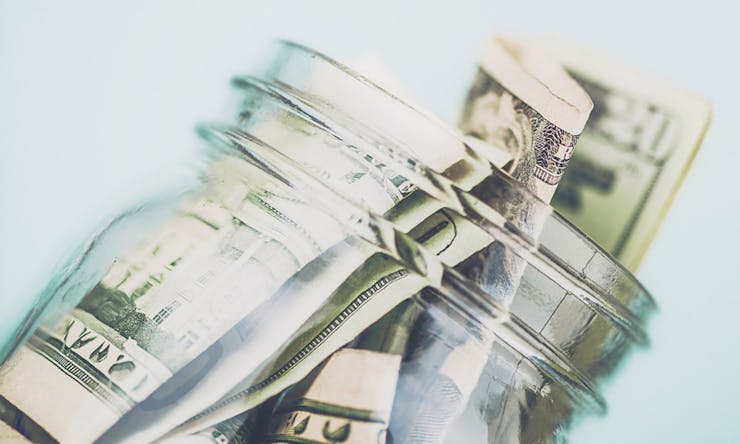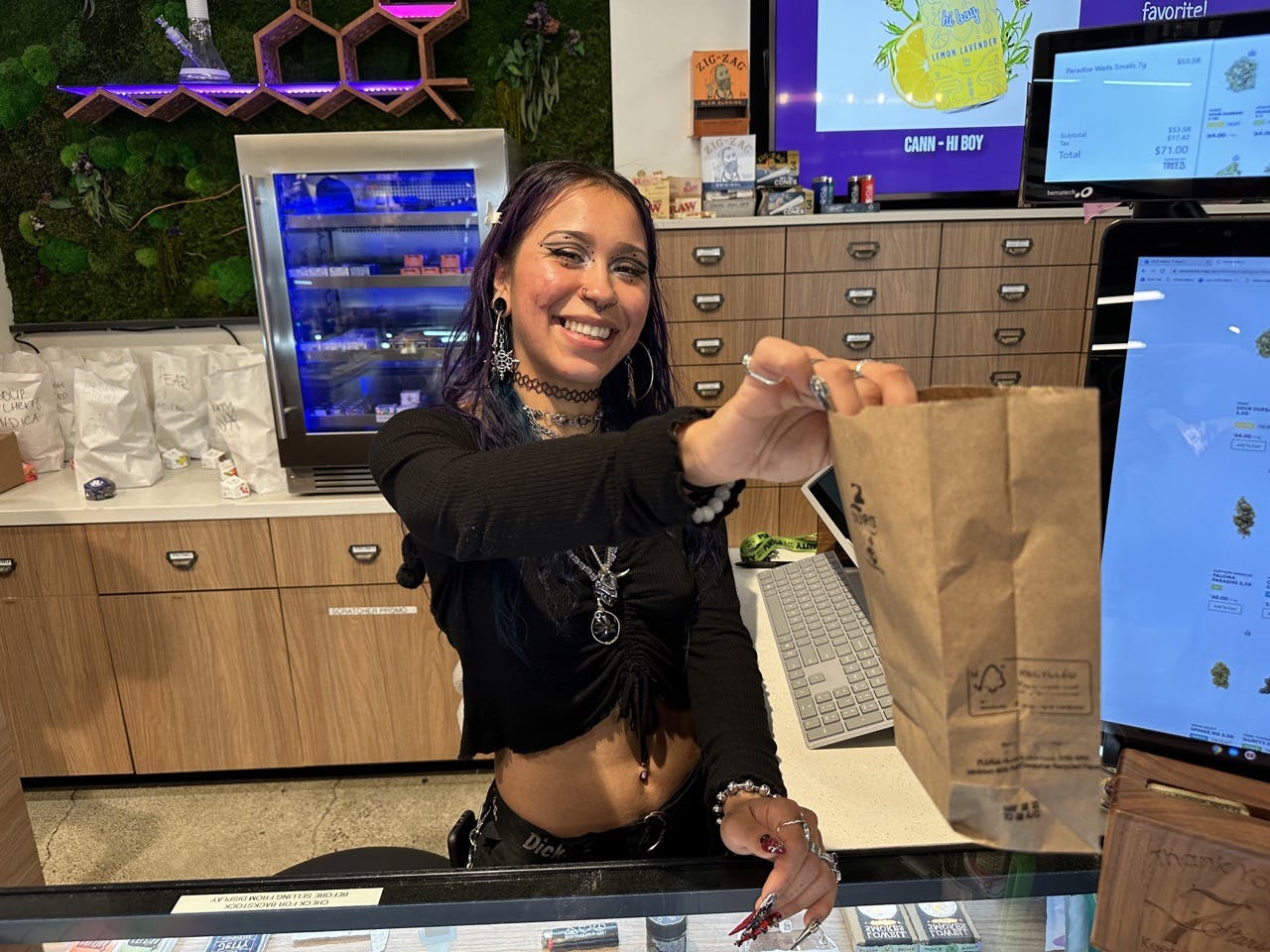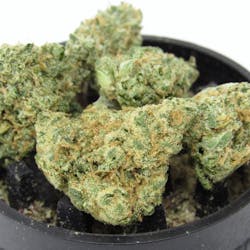Tipping is a large part of American culture, with added gratuity encouraged for activities ranging from dining out to ordering coffee to getting your hair cut. But what about your favorite dispensary’s budtender? Should you float a tip (or a “donation,” as it’s often carefully worded) to the budtender as a thank you for providing exceptional service?
One legal market sought to clarify the state’s stance on retail cannabis tipping. In Washington, the State Liquor and Cannabis Board made the following announcement:
Tipping has not been an allowable practice in a retail marijuana licensed location. This position was adopted based on an interpretation of RCW 69.50.357, and indications that prices of products were being manipulated based on the size of a tip to avoid paying excise tax.
Effective immediately, customer tipping is now an allowable practice in licensed retail marijuana stores. However, tipping cannot be required or a condition of sale, nor can it be linked to the price of the product to avoid tax obligations.
Unfortunately, the new guidelines raised more questions than before, as many patients and consumers were unaware that tipping was previously illegal and had only recently been deemed acceptable. Now we’re left pondering the following:
- Should you tip your budtenders?
- Is it necessary?
- How much is an appropriate tip?
To clear up any misconceptions about this unofficial practice, we reached out to budtenders from California, Washington, Colorado, Oregon, and Illinois (one of the newest medical marijuana markets) to clarify the protocol for tipping, whether it’s encouraged, expected or completely unnecessary.
The Verdict: Tipping Should Be Considered a Bonus
The biggest takeaway from every budtender we spoke to was that tips are a bonus and are almost never expected. “If I’m taking the time to explain about terpenes and the profile and the farming techniques used and [am] really getting into it, it’s definitely nice to feel appreciated for that knowledge and the extra time it takes to help someone out,” said Zoe Wilder, a longtime Oregon budtender. When asked what is considered an appropriate tip, her response was measured. “I think it depends on how much time you’ve spent with your budtender and the quality of the information you received, and how much you’re spending.”
The question of etiquette was similar, from market to market. Many budtenders compared the cannabis industry to the restaurant or alcohol industry, although the opinions on how the two industries were related varied.
“If you want to compare this industry to alcohol and regulate it the same, people tip their bartender based on suggestions on drinks,” mused Dylan Robertson, a budtender at Medicine Man in Denver. “It’s really more of a consultation service for someone, giving them recommendations based on what they’re trying to create or what they’re using cannabis for. But it’s certainly nothing that should be expected.”
Wilder agreed, commenting, “It’s just like any other scenario. You go to a wine bar and someone takes the time to express their opinions about all the selections on the menu and really gives you a nice background on the history of the terroir, all the techniques that go into it, then I want to tip that person because they’ve gone out of their way to make it a really enjoyable experience.”
The flip side of the coin came from the newest market, Illinois, where Brian Besse of Nature’s Care also used his background in the restaurant industry to compare tipping policy.
“As a guy who’s been working in the bar, nightclub and restaurant industry in all sides of it from being a barback, bartender, to manager, to owner, I think it’s wonderful. The difference is that tipped employees make a much lower rate than a non-tipped employee, so that may present some issues down the road.”
Although he makes a good point, the minimum wage varies from state to state. Washington, for example, has a minimum wage of $9.47 an hour, no matter what kind of tips the employee is making (the city of Seattle, however, has recently raised its minimum wage to $15 an hour). On the other hand, for a tipped employee in Illinois, the wage can be as low as $4.65, while an Illinois budtender makes an average of $24,000 a year, or about $11.24 an hour.
When we asked Besse about his opinion on tipping budtenders, he sounded flabbergasted that we would even ask. “I hadn’t even thought about it until this conversation,” he admitted. “You put me on the spot here.”
Nick Singer from Paper & Leaf in Washington also used his service background as fodder for tipping etiquette. “I come from the restaurant industry, where I was a bartender. If someone makes you a drink and waits on you hand and foot, I still don’t think it’s necessary. A dollar’s nice here, sometimes somebody puts a five in there if they spend a lot of money. It’s nice, don’t get me wrong, I wouldn’t tell somebody not to tip me,” he chuckled.
Many stores, rather than having a jar devoted solely to tips, put out a “karma jar,” as Washington retailer Paper & Leaf employs, although the jar serves multiple functions.
“We have a karma jar policy here, sort of like a ‘take-a-penny, leave-a-penny’ with our customers,” said Evan Price with Paper & Leaf. Co-budtender Singer expounded on the varied uses of the jar, “It’s like our tip jar, but it also goes the other way. If you need to use it, you can use it as a customer and get what you need if you’re a few dollars short, so you’ll be able to come back the next time.”
“We’re trying to make people feel loyal to us and feel welcomed as well.”
What’s an Appropriate Tip Amount?
When asked what an “appropriate” tip is for a budtender, the general consensus was that a tip is never expected, but tips should generally be based on the quality of the service the customer received, and, perhaps, the amount of money spent on the purchase overall.
One California budtender noted that many of their patients were often in the restaurant industry themselves, holding down jobs that rely on tips. Therefore, those patrons are far more likely to tip regularly, although he quickly followed up with “Most of us don’t really work for the tips. There’s nothing expected.”
Wilder also mentioned something that many patients and patrons may be unaware of. “A lot of people probably don’t think of it this way, but there’s a lot of continuing education that goes into being a budtender. This is something that continues every day – new articles, some kind of new insight into this plant that we’re just now starting to discover all these wonderful things about because for so long we weren’t allowed to. It’s a ‘continuing education’ situation, just like a doctor or a therapist. When you think about it like that, you’re more inclined to tip someone because they’re not just sitting there giving you something off the shelf. They’re really putting the time and dedication and work into learning about the product.”
From this series of interviews emerged a truly encouraging conclusion from every industry worker: their passion was evident and the tips were an afterthought.
“For me personally, I don’t work for tips,” said Robertson of Medicine Man. “I enjoy the passionate part of easing someone’s day, making their lives a little easier.”






